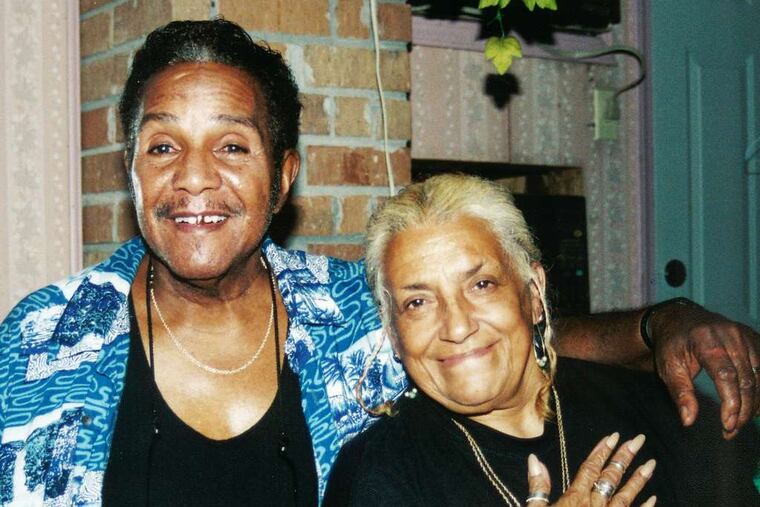Forgotten genius of the NOLA sound
Jelly Roll Morton. Professor Longhair. Fats Domino. Allen Touissant. Dr. John. James Booker. New Orleans has produced a long line of piano-playing musical geniuses. Ironically, you hear very little these days about someone who not only is an integral part of that tradition but is actually called "Piano."

Huey "Piano" Smith and the Rocking Pneumonia Blues
By John Wirt
Louisiana State University Press. 294 pages. $25.95
nolead ends nolead begins
Reviewed by Nick Cristiano
Jelly Roll Morton. Professor Longhair. Fats Domino. Allen Touissant. Dr. John. James Booker.
New Orleans has produced a long line of piano-playing musical geniuses. Ironically, you hear very little these days about someone who not only is an integral part of that tradition but is actually called "Piano."
Huey "Piano" Smith, the composer and performer behind the immortal "The Rocking Pneumonia and the Boogie-Woogie Flu" and other 1950s hits, played as much of a role as his more celebrated peers in creating the New Orleans sounds that captivated the world and helped shape rock-and-roll.
Along with his outrageously out-there band, the Clowns, Smith was an early influence on rockers such as Robert Plant and Robbie Robertson, and his songs have been recorded by dozens of major artists.
As Dr. John puts it in John Wirt's engrossing biography, pointing up the reverence his Crescent City brethren have for Smith: "I credit Huey with opening the door for funk, basically as we know it, in some ridiculously hip way, and putting it in the mainstream of the world's music."
For all the enduringly infectious joy of the music, however, the title of the book contains the word Blues for a reason: In a business rife with hard-luck stories, of artists victimized by less-than-scrupulous record companies and management, Smith's, as meticulously detailed by Wirt, has to be one of the saddest and most infuriating.
His songs earned fortunes, but Smith not only saw very little of the money, he was forced into bankruptcy. Wirt follows the musician's long and largely unsuccessful attempts to gain his full royalties from his four most famous compositions: "Rocking Pneumonia," "Don't You Just Know It," "High Blood Pressure," and "Sea Cruise."
The story behind "Sea Cruise" adds another wrenching layer of disappointment. Smith had cut the song himself, thinking it was a surefire follow-up hit to "Don't You Just Know It." The record company had other ideas: It put Frankie Ford's vocal over Smith's musical track. Now, Huey never sang on his own hits - he always employed other vocalists, most notably Bobby Marchan. But this was something different. "Sea Cruise" was indeed a smash - but for Ford, not Huey and the Clowns.
Wirt is a veteran newspaper entertainment reporter, and Huey "Piano" Smith and the Rocking Pneumonia Blues is deeply researched and reported: He spoke to scores of people, from Smith, members of the Clowns, and other New Orleans musicians to record company and legal figures. The narrative lacks the literary flair and sweep of, say, Greil Marcus or Nick Tosches, but Wirt makes palpable the frustration and heartbreak of Smith's struggles, as well as the piano man's amazingly dogged spirit in the face of all the adversity. If the details of the legal maneuverings threaten at times to bog down the flow of the story, the author offers plenty of colorful tales from Smith and his fellow musicians as well as testimony to his influence and innovation.
Back to Dr. John: "Huey would tell you stuff like, 'Make your guitar sound like a bongo.' He'd hear different things, let you know what it was and get it out of you real hiply. I loved that about Huey. And a lot of it worked. We tried things with the electric keyboard early on. Huey always had this idea that it should sound like a guitar, but it was Huey's version of what a guitar thing should be. And then he'd add organ and a piano. So you got three keyboards . . . way before Phil Spector or whoever was doing that crap later."
The 80-year-old Smith long ago moved to Baton Rouge, La., where he leads a quiet life as a family man and Jehovah's Witness. Given what he's been through, it's understandable if he prefers to keep a low profile.
In a way, though, that's a shame. Earl Palmer, the great New Orleans drummer who played on 1950s sessions with Smith and who died in 2008, put it this way in one of the book's last words on Smith's towering legacy:
"To me he was the man that got more out of simplicity than anybody in New Orleans. And everything Huey did was just wrapped in New Orleans. . . . I hope he can come out of his shell enough to perform some more. Because he can get heard by some more people, man, and they can find out who really instigated a lot of that music."